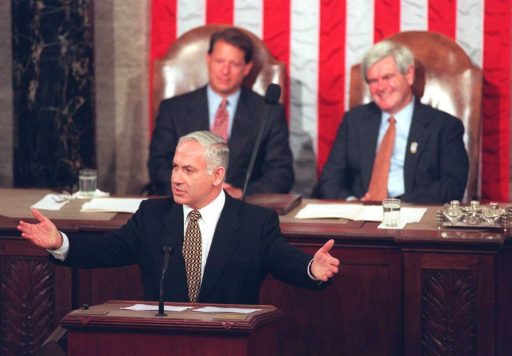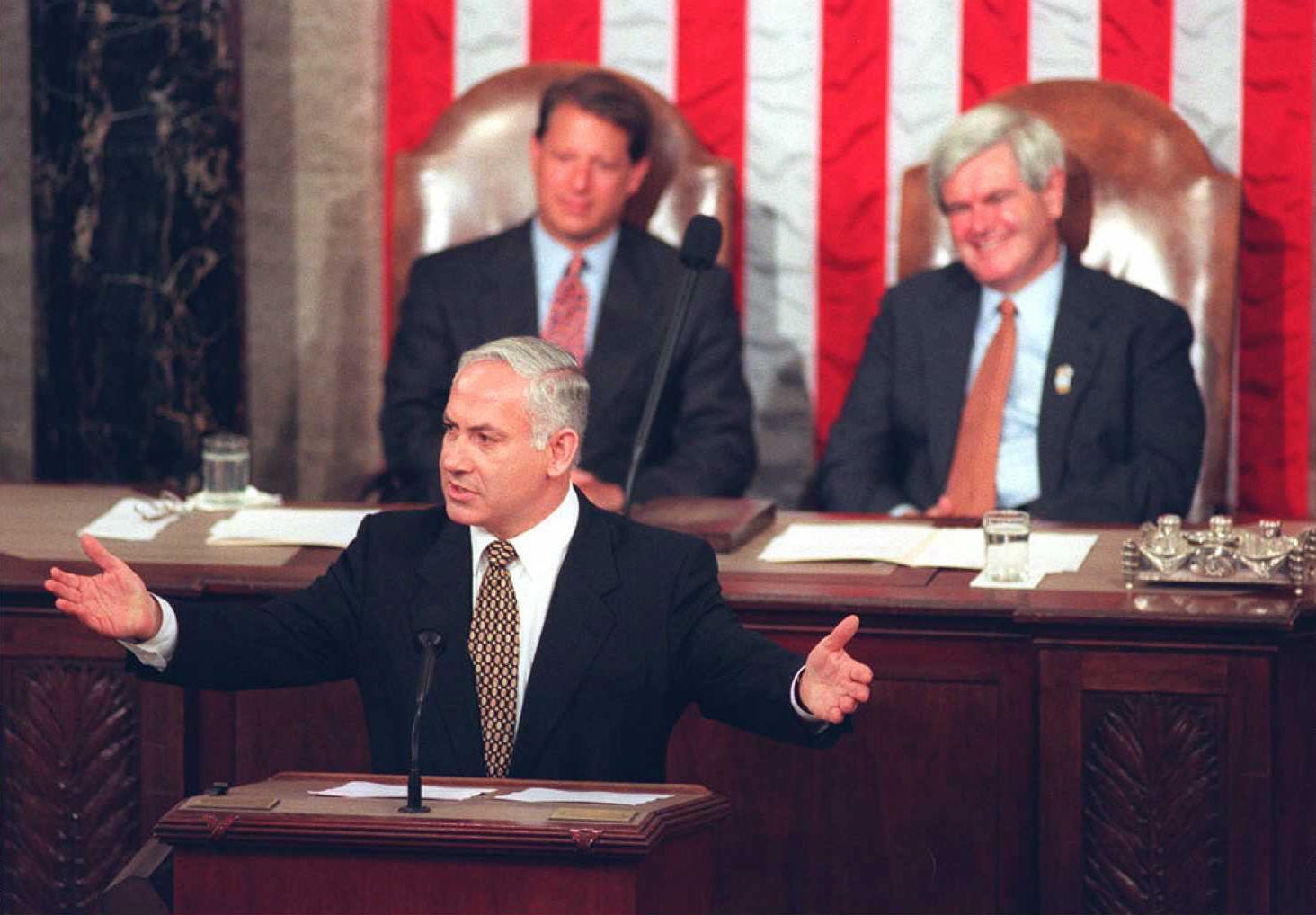Dissatisfied with Prime Minister Peres’ peacemaking strategy, Israeli voters elected a new Prime Minister – Binyamin Netanyahu – by a narrow margin. Netanyahu believes national security and defense — not international economic development-are the keys to peace at home and abroad. Time will tell if he is right; and righteousness alone will bring peace in our time.
The May 1996 election results were a surprise and a shock. The Likud Party was elated, while the governing Labor Party and the Washington establishment were stunned. The electoral campaign proves that principled policies and casting votes really matter.
The election for prime minister was very close: former PM Shimon Peres received 49.50% while the new PM Binyamin Netanyahu received 50.40%. (Remember, however, that in the l960 U.S. election Kennedy received 50.1% and Nixon 49.9%.) Israelis are familiar with close elections. In 1988, Peres narrowly lost to Likud’s Shamir and the 1984 election was deadlocked, leading to a National Unity government in which Peres served as PM for the first two years and from 1986-88 as foreign minister. To avoid gridlock in forming a government, Israelis this year voted directly for the candidates.
Every election is critical and every vote counts. Netanyahu won by about 30,000 out of nearly three million voters. It is not only important that citizens come out to vote, but that partisans get out the vote. Each election is decisive, yet also divisive — it splits the electorate along ideological perspectives. The winner becomes prime minister and the majority forms the government. However, the losers still have an opportunity to be the loyal opposition and offer their alternative programs.
The Labor and Likud platforms promised ” Peace and Security.” Both Peres and Netanyahu are principled policy makers; however, they approach their agendas from opposite perspectives. The U.N. and U.S. State Department may have perceived Peres as a Peace Dove and Netanyahu as a hawk. It was misleading to identify Peres as the only peace candidate and the multilateral process as the way of peace.
The ideologue Peres gave priority to a global approach in the Middle East. As a socialist, he stressed social and economic development as a road to peace, perceiving that poverty , particularly among the Palestinians, was the root of violence and a contributing factor to terrorism. It is ironic that as a former defence minister, Peres should re-define “Security” from national defense to international development. As Foreign Minister, he began to believe the U.N. line that development is “Peace.” The internationalist Peres’ utopian vision of “new” security was a “New Israel” within The New Middle East (l993).
Peres was present at the March l996 Summit of Peacemakers. The summitteers, such as President Clinton, Egyptian President Mubarak, and PLO Chairman Arafat, talked about the three objectives: “to enhance the peace process, to promote security, and to combat terror.” However, before a national leader can be a successful peacemaker abroad, he must first be an effective peacekeeper. Peres may have been ahead of his time, but the Israeli voters preferred a politician on the Right with the right priority.
Prime Minister Netanyahu’s traditional view of “Security,” as national security, and his emphasis on the defense of the nation-state, carried him to victory. The Likud government, like the Reagan administration, may believe that negotiations through strength is still a political virtue. Summitry “peacemakers” talk about combatting terrorists and Peres reacted decisively during the campaign. However, Netanyahu is a recognized expert on international terrorism. He believes in Fighting Terrorism (l995) and thinks he knows “[h]ow Democracies Can Defeat Domestic and International Terrorism”(subtitle). No wonder that a majority of Israelis, living in real fear, decided to cast their lot with a charismatic leader. Time will tell whether his defense policy and diplomacy will provide national security and international peace.
Peace and Security have been a major preoccupation of many parties. In the explosive Middle East they have been an elusive goal for both the Right and the Left. The Likud coalition has its work cut out as it struggles to govern into the next millennium. Upon reflection, priority ought to be placed on the linkage of peace and righteousness to promote domestic tranquility and harmony among all racial and religious groups. As a democracy, does Israel provide “equal justice” for all her residents: Jews, Arabs, Palestinians, Christians?
Jerusalem may be 3,000 years old, but this world capital is not the eternal city of man’s destiny. In the Middle East, real peace may not be achieved through realpolitik or unreal federalism. A new politics of true peace, of righteousness and justice, will enhance the process of reconciliation among neighboring nation-states. Peace may be the main goal, but in the long run it does not matter that Peres, Rabin,and Arafat received the Nobel Peace Prize. Ultimately, it matters whether Israeli and Arab statesmen are worthy of the leadership prize from the Prince of Peace. Will they and other world leaders catch a vision to link the new international order within the paradigm of the New Jerusalem?





